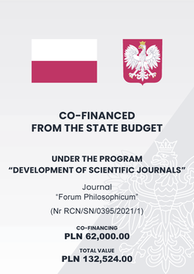- Home »
- Issues »
- 15/1 - Spring 2010 »
- Articles »
Hobbes’s Theory of State. The Structure and Function of State as the Key to its Enduring
Abstract
Thomas Hobbes bequeathed to us a comprehensive system, the interpretation of which remains a matter of disagreement even today. In his political theory, he pays most attention to the state community. He deliberates over the reasons for its origin, its decline and fall. Among the more detailed issues dealt within his reflections, the more important ones are the following: the concept of the state of nature, human motivation, the state of war and peace, as well as considerations concerning the social contract. In order to be consistent in his argument, Hobbes also deals with the analysis of the structures of the state, the division of power and with the functions a state should perform. Due to these deliberations, he finally arrives at the secret of the state’s durability. Though it is certainly the case that, since his times, the socio-political situation and circumstances have changed, many of the solutions postulated by Hobbes have not lost their value.
Keywords
Cite this article
Charchuła, Jarosław. “Hobbes’s Theory of State: The Structure and Function of State as the Key to its Enduring.“ Forum Philosophicum 15, no. 1 (2010): 191–203. doi:10.35765/forphil.2010.1501.12.
Bibliography
Hobbes, Thomas. De Cive. 1651. Accessed January 18, 2010. http://socserv2.socsci.mcmaster.ca/~econ/ugcm/3ll3/hobbes/. Hobbes, Thomas. Leviathan. Edited by Richard Tuck. Cambridge: Cambridge University Press, 1991. Tokarczyk, Roman. Hobbes: zarys żywota i myśli. Lublin: Wydawnictwo. Uniwersytetu Marii Curie-Skłodowskiej, 1998. Wudel, Witold. Filozofia strachu i nadziei. Teoria społeczna Tomasza Hobbesa. Warszawa: Książka i Wiedza, 1971.





